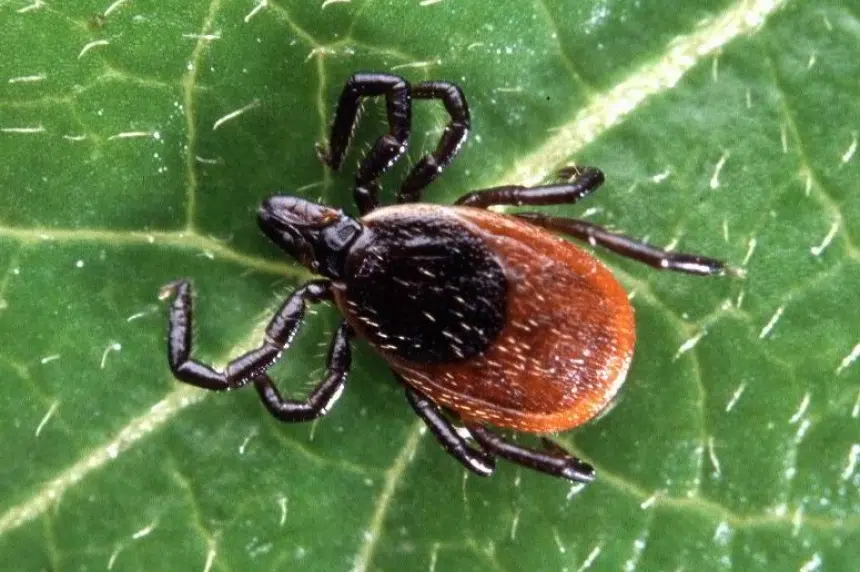A Saskatchewan woman is headed to Europe seeking treatment for Lyme disease.
Logan Zimmerman said his wife Camille started getting sick about a year-and-a-half ago.
“It took a long time to get diagnosed. She was very sick for close to six months and we couldn’t figure out what was going on,” he said.
Zimmerman said doctors tested Camille for any number of conditions, including multiple sclerosis, but couldn’t find the source of the problem.
“She had almost three months straight where she couldn’t get out of bed,” he said.
Eventually, a chiropractor who had suffered from the condition himself pointed the couple in the right direction.
They sent Camille’s blood work to a lab in the U.S., as well as a Canadian facility.
Both tests confirmed Camille had Lyme.
“It’s frustrating, the doctors. We have a great general practitioner and he’s helped us a lot, but they just don’t seem to be really well-educated on what’s actually happening and what the best way to treat it is,” he said.
Camille has been getting intravenous antibiotics at a clinic in Prince Albert, where Zimmerman said he’s seen first-hand that Lyme disease has come to the province.
“There are a lot of people being treated for Lyme disease in Saskatchewan, and a lot of those people have never left the province,” he said.
Although he praised the treatment his wife’s been getting since being diagnosed, Zimmerman said they’re heading to a clinic in Germany that offers a better success rate.
They claim they have a 65 per cent cure rate with Lyme disease. So we’re hoping even if it’s not a complete cure, at least it’ll speed up her recovery by a couple years hopefully,” he said.
Zimmerman said his wife will undergo intensive therapy for three weeks at the clinic, followed by months of treatment once she’s back in Canada.
Foundation calls for testing changes
The Canadian Lyme Disease Foundation is an advocacy group for patients with the debilitating illness.
President Jim Wilson told the Brent Loucks Show Thursday that Lyme is on the rise in Canada, and Saskatchewan isn’t immune.
“It’s only going to increase in numbers in the coming years,” he said, noting the species of tick that causes the disease is found in the province.
Wilson said the common frustration his organization hears from patients is the test used to detect Lyme in Canada produces too many false negatives.
Wilson said he agrees it’s a problem.
“It becomes less effective as you go from the east coast to the west coast. That’s because there’s a variation in the species and the strains of the Lyme bacteria.”
Wilson said they tell people to send their blood out of the province for a second opinion, adding the U.S. and Europe do a better job of testing.
While getting a proper diagnosis is a growing frustration , Wilson believes a shift is happening in the medical community.
“There is a growing number of Canadian doctors that are now recognizing that if they do step out of the box and actually treat the patient, it’s remarkable how the recovery takes place.”
“So they’re starting to doubt the guidelines that they’re under pressure to follow in Canada.”
Of 21,000 ticks sampled in Saskatchewan over the past decade, 50 were the type that caused lyme disease, according to the provincial government.












